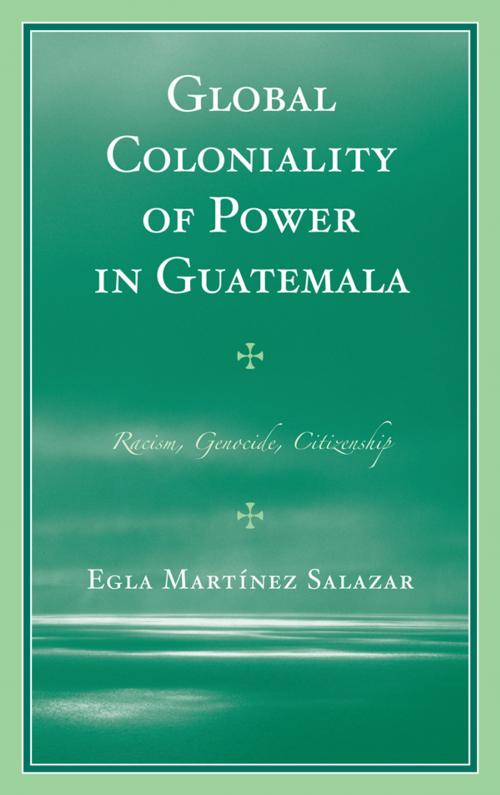Global Coloniality of Power in Guatemala
Racism, Genocide, Citizenship
Nonfiction, Social & Cultural Studies, Social Science, Cultural Studies, Ethnic Studies, Discrimination & Race Relations, Gender Studies| Author: | Egla Martínez Salazar | ISBN: | 9780739141243 |
| Publisher: | Lexington Books | Publication: | July 20, 2012 |
| Imprint: | Lexington Books | Language: | English |
| Author: | Egla Martínez Salazar |
| ISBN: | 9780739141243 |
| Publisher: | Lexington Books |
| Publication: | July 20, 2012 |
| Imprint: | Lexington Books |
| Language: | English |
In this engaged critique of the geopolitics of knowledge, Egla Martínez Salazar examines the genocide and other forms of state terror such as racialized feminicide and the attack on Maya childhood, which occurred in Guatemala of the 1980s and '90s with the full support of Western colonial powers. Drawing on a careful analysis of recently declassified state documents, thematic life histories, and compelling interviews with Maya and Mestizo women and men survivors, Martinez Salazar shows how people resisting oppression were converted into the politically abject. At the center of her book is an examination of how coloniality survives colonialism—a crucial point for understanding how contemporary hegemonic practices and ideologies such as equality, democracy, human rights, peace, and citizenship are deeply contested terrains, for they create nominal equality from practical social inequality. While many in the global North continue to enjoy the benefits of this domination, millions, if not billions, in both the South and North have been persecuted, controlled, and exterminated during their struggles for a more just world.
In this engaged critique of the geopolitics of knowledge, Egla Martínez Salazar examines the genocide and other forms of state terror such as racialized feminicide and the attack on Maya childhood, which occurred in Guatemala of the 1980s and '90s with the full support of Western colonial powers. Drawing on a careful analysis of recently declassified state documents, thematic life histories, and compelling interviews with Maya and Mestizo women and men survivors, Martinez Salazar shows how people resisting oppression were converted into the politically abject. At the center of her book is an examination of how coloniality survives colonialism—a crucial point for understanding how contemporary hegemonic practices and ideologies such as equality, democracy, human rights, peace, and citizenship are deeply contested terrains, for they create nominal equality from practical social inequality. While many in the global North continue to enjoy the benefits of this domination, millions, if not billions, in both the South and North have been persecuted, controlled, and exterminated during their struggles for a more just world.















